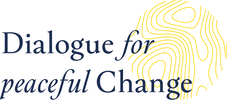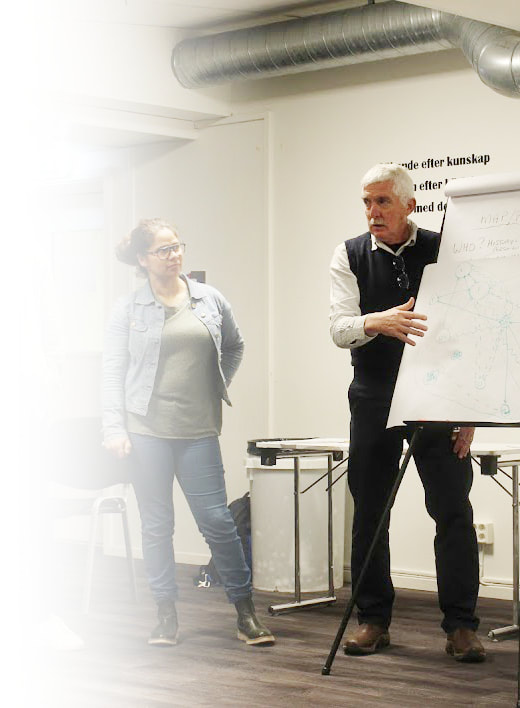FACILITATOR TRAINING
TRANSFORM THE CONVERSATIONSo often human conflict is characterised by people talking past each other, unable to hear the other sides perspective.
Ground for resolution can only grow from dialogue characterised by two core skills (i) the ability to listen to the other, (ii) the capacity to summarise the others perspective before giving a judgement about their thoughts and ideas. These mediative skills may sound simple but they are often all too difficult to practice when it matters. The good news is they can be learned, practiced and mastered - this is the core of Dialogue for Peaceful Change. The DPC Facilitator training course will lead you beyond debate and discussion towards looking for common ground and creative discovery of new options for ways out of seemingly unresolvable differences and conflicts. |
COURSE ELEMENTS
|
|
manual &
|
"I should have had this training at the very beginning of my career and not after my retirement." |
COURSE MODULES
|
01
|
The Nature of Conflict
In this module we work on the ways we experience conflict in normal life and how we experienced dealing with conflict starting at a young age. We also dig deeper by looking at the biological aspects of dealing with conflicts which are already integrated in our daily lives. |
|
02
|
The Iceberg Model
In this module we explore the Iceberg Model, an approach to understanding conflicts which digs much deeper into the patterns of conflict than simple ‘cause / conflict / conflict management / solution’ model. The model opens up the far harder path towards real transformation of situations, also including indirect actors in the system - who are often far more influential than we mostly think! |
|
03
|
The FEARS Model
In this module we unpack a model that deals with drivers of conflict in daily life. Beyond the biological needs, there is a huge influence of desire – a concept of René Girard. The FEARS Model helps surfaces dynamics and the fears which we all experience in conflicts. From this point of understanding we can open up new options for dealing with these dynamics more adequately. |
|
04
|
The TIDES Model
Getting out of conflicts requires an orientation, a sense of direction. What are the dominant values, which can be helpful to find common ground? In this module we get closer to this sense of direction and explore it can help us navigate conflict more effectively. |
|
05
|
Conflict Mapping Toolkit
The more specific and tested tools one has, the more adequate the approach can be when dealing with conflicts. In this module participants learn and practice using two mapping tools - Actor Mapping & Conflict Pillar Mapping - that create help oversight and improve communication. |
|
06
|
Applied Mediation Practice
In this module participants step into to practice their mediative skill set and apply their learning from the previous modules through coached role plays in which they pair up to mediate two other participants in the group who act as people in an active conflict scenario. This role play method provides a unique space to practice as it gives a sense of real human reactions to different interventions while giving the opportunity to 'rewind', receive coaching and try again when a mediators intervention doesn't work. It is also a lot of fun! |
Possible Add on Modules
When organising this course in partnership with an organisation or community we can add on the additional module below if it suits your learning needs. However this module addition requires additional time on top of the time for the normal training.
If interested please contact us to discuss.
If interested please contact us to discuss.
+ |
Conflict Phase Rotation
Within conflicts we can distinguish different phases of progression. Each phases requires a different approach to working towards peaceful change. In this module participants will explore these different approaches through an experiential exercise that rotates them through working on conflict scenarios to come up with different strategies at each different phase of progression. |
Ready to PRACTICE? |
Have a Question? |
Proudly powered by Weebly



